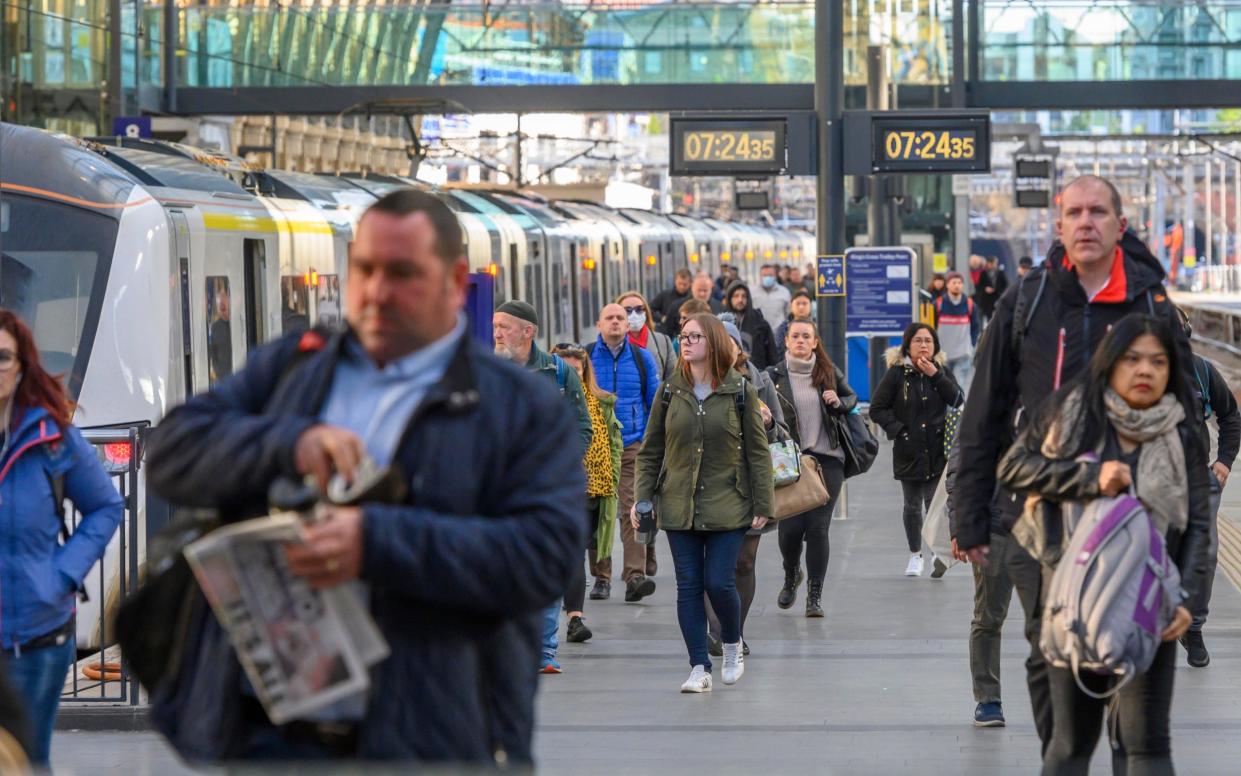Passengers on Britain’s busiest rail line hit with Uber-style surge pricing

Passengers on Britain’s busiest rail line have been hit with Uber-style surge pricing following a “radical” overhaul of ticket rules.
LNER has scrapped off-peak travel on parts of the East Coast Main Line and introduced a “semi-flexible” fare that will be more expensive when trains are busier.
The operator has also withdrawn its super off-peak fare, generally the cheapest ticket, that could be used on several trains at quieter times of day, was refundable, not limited to LNER, and did not need to be bought in advance.
It means customers will no longer be able to take advantage of the old low-cost tickets to travel during off-peak hours, usually anytime from Monday to Friday between 9.30am to 4pm and after 7pm.
The so-called “70min Flex” fare will replace off-peak and super-off peak tickets and follow dynamic pricing, varying in cost depending on demand, time of day, day of week and how far in advance it is booked.
Now only 1 hour and 10 minutes of leeway will be allowed either after or before the ticket’s booked time for customers to use other trains, should they be running late or need to travel sooner.
The new fares structure was launched on Tuesday for travel from February 5 in an effort to “simplify” the ticket structure, LNER said.
Under the new system LNER customers will choose between the new fare and the operator’s Advance ticket, which is fixed for one service, and its most expensive Anytime fare, that if valid any time of day.
Changes to ticketing options on the line will be trialled for two years as part of Great British Railways (GBR), a public sector body being set up to bring in sweeping changes to the UK’s rail network.

The move has raised concerns that customers will be left with reduced choice when booking journeys between London King’s Cross, Newcastle, Berwick-upon-Tweed and Edinburgh.
Mark Smith, founder of train travel website Seat61.com, said that the fare came with “a significant reduction in flexibility” compared with the previous system.
He said that people travelling from London King’s Cross to Edinburgh can find “a better deal” if they buy an off-peak ticket to Haymarket, one stop beyond Edinburgh, rather than LNER’s new fare.
He also warned that even if the trial is successful, the system “can’t be rolled out network-wide” as there would need to be two different versions for long and short distances, which “complicates things again”.
LNER, which is owned by the Department for Transport, launched single-leg pricing in 2020 for around half the price of a return in an effort to allow passengers to mix and match different types of tickets to get better value.
Britain’s train ticketing system currently means many return fares are only £1 more than single fares.
Simplifying fares is among the proposed tasks for GBR, which was initially due to be launched early this year but the required legislation has not been passed and no timeline has been set out by the Government.
Alex Robertson, chief executive at watchdog Transport Focus, said: “The plan to trial demand-based pricing on some LNER routes is a radical change for passengers.
“Transport Focus strongly supports fares reform and it’s right to trial new ideas to see if they work.
“We look forward to hearing how the trial progresses and will be monitoring that it does indeed deliver better value for money tickets for passengers.”
Rail minister Huw Merriman said: “We are delivering on our commitment to reform the railways, working with operators to provide passengers with simpler and more flexible tickets that better suit their needs.”
LNER managing director David Horne said: “LNER remains at the forefront of rail reform. Simplifying fares is vital in making rail travel more attractive. Customers tell us they find fares confusing.
“This exciting new pilot is the next step in our plans to overhaul complicated and outdated ticketing options and we look forward to hearing feedback from our customers.
“We believe that making fares simpler, smarter and fairer, while introducing value for money and modern flexibility, will encourage more people to choose to travel by rail, the most sustainable travel choice.”

 Yahoo News
Yahoo News 
